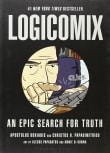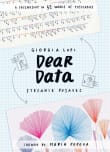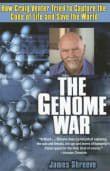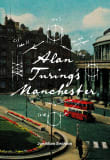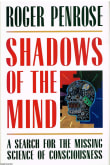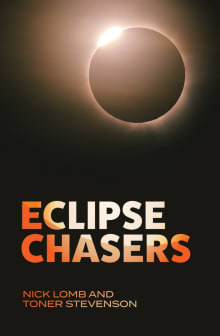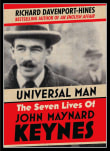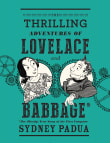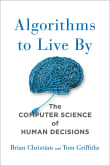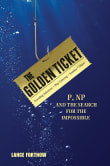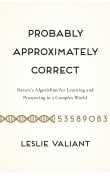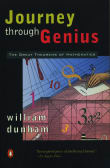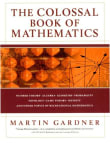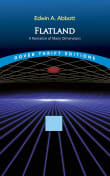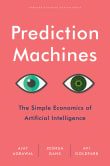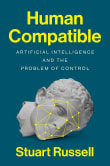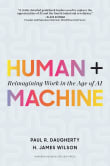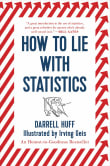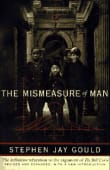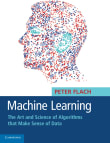Weapons of Math Destruction
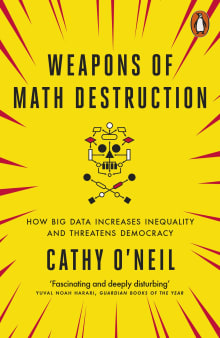
Book description
'A manual for the 21st-century citizen... accessible, refreshingly critical, relevant and urgent' - Financial Times
'Fascinating and deeply disturbing' - Yuval Noah Harari, Guardian Books of the Year
In this New York Times bestseller, Cathy O'Neil, one of the first champions of algorithmic accountability, sounds an alarm on the mathematical…
Why read it?
11 authors picked Weapons of Math Destruction as one of their favorite books. Why do they recommend it?

A primary reason to love math is because of its usefulness. This book shows two sides of math’s applicability, since it is so ubiquitously used in various algorithms.
On the one hand, such usage can be good, because statistical inferences can make our life easier and enrich it. On the other, when these are not properly designed or monitored, it can lead to catastrophic consequences. Mathematics is a powerful force, as powerful as wind or fire, and needs to be harnessed just as carefully.
Cathy O’Neil’s message in this book spoke deeply to me, reminding me that I need to…
From Manil's list on to make you fall in love with mathematics.

Remember How to Lie With Statistics? Here is: How to abuse big data. And how to stop the abuse.
O’Neil is a good corrective for my own habit of seeing all sides. A former math professor and quant, she is harsh on AI because it systematically punishes the vulnerable and impoverished – and because companies resist change and manipulate the laws to keep their profits.
“Right now, the burden of proof is on us,” she told Juliette and me in an interview, “to prove that these algorithms harm us. I want that burden to be on the companies who…
From Art's list on understanding AI and its effect on people.

More and more of the decisions that affect our lives are being made by AI algorithms.
These algorithms decide who gets weeded out of a stack of school or job applications, who is or is not a good candidate for parole. They mete out welfare and health insurance payments and decide who gets an operation or a transplant. While using an algorithm might seem fairer than relying on human judgment, O’Neil points out the many ways in which these algorithms embody our all too human biases and actually reinforce discrimination and undermine democracy.
An easy read, O’Neil clearly shows the…
From Noreen's list on the dangerous future of AI.
If you love Weapons of Math Destruction...

O’Neil received a Ph.D. in mathematics from Harvard, but don’t worry, there are no formulas in the book!
After a stint in academia, she went to work for a hedge fund in New York, where they applied statistical models in finance, and made lots of money. However, O’Neil became more and more concerned that their models enabled some people to take advantage of other people.
Digging deeper outside her own company, she found a shocking growth in untested and unverified models being used to guide hiring and firing, determine criminal sentencing and parole decisions, and find gullible people for predatory…
From Roger's list on AI and data science that are actually readable.

I found this such an exciting and timely book.
Cathy O’Neill’s exploration of how big data and algorithms reinforce inequality and injustice became my ideal “leave behind” gift for politicians who’d swallowed too much “big data”/“algorithmic magic” snake oil from the tech bros.
Like the hidden persuasion unmasked by Vance Packard in the 1950s, these hidden models increasingly have significant (negative) socioeconomic and political consequences, often for those already most disadvantaged. It’s a reminder of how technology can undermine and poison the roots of democracy.
From Jerry's list on technology and democracy.

The more data the better? Not necessarily. Cathy O’Neil, an academic mathematician turned Wall Street quant turned data scientist, shows again and again how big data “threatens democracy." The ‘weapons of math destruction’ are models or algorithms that claim to quantify important human traits but can harm the poor, reinforce racism, and amplify inequality. Her glimpse of the dark side of big data shows how computers are only smart as the people who use them, the people who write their algorithms, the people who supply their data, and the people who curate all those data and algorithms. The old saw…
From Roger's list on what big data is and how it impacts us.
If you love Cathy O’Neil...

More power means more responsibility. Let’s face it, machine learning, artificial intelligence, and data science tend to make algorithms much more pervasive. This pervasiveness is great, although it comes with a secondary effect of causing other issues. Whether it’s policing, racial profiling, or other sticky issues math and statistics tend to not care.
It’s up to us to make sure we use math for good. That’s why I recommend this book.
From Matthew's list on ethical artificial intelligence.

Computers can be very clever and make near-perfect decisions in the right circumstances, but they are just machines. They are designed to perform certain tasks and make certain decisions, but they have no moral compass and no conscience. This means that if not designed properly, and without proper human oversight, they can drive unfair and biased decision-making that negatively impacts the lives of those subject to their decisions. This book was one of the first to highlight the “Dark side” of machine-based decision-making and bring it to the public’s attention. Through the use of many examples, it catalogues cases where…
From Steve's list on machine learning for managers and business leaders.

It is no surprise that algorithms, statistics, and computation have changed our lives irrevocably. In many cases these are changes for the better. However, because we view mathematics as true and impartial, it is easy to view the output of algorithms as immune from the biases that affect human decision-making. In Weapons of Math Destruction Cathy O’Neil gives us many reasons to rethink this perception. Algorithms are written by humans and data is collected by humans. Thus, the output of these seemingly impartial algorithms may have the same biases that humans do, or even ones that are worse, and they…
From David's list on for mathematics enthusiasts.
If you love Weapons of Math Destruction...

This is the original and the best deconstruction of algorithmic bias, written by an insider who has seen firsthand how the sausage is made. As a pure math professor turned hedge fund quant, Cathy O’Neil has the tools to rip open algorithmic cans of worms, from financial crises to college admissions. Paradoxically, she does this with equal measures of gusto and clarity, making this the most fun depressing book on my bookshelf.
From John's list on algorithms for people who don’t know algorithms.
If you love Weapons of Math Destruction...
Want books like Weapons of Math Destruction?
Our community of 12,000+ authors has personally recommended 100 books like Weapons of Math Destruction.



